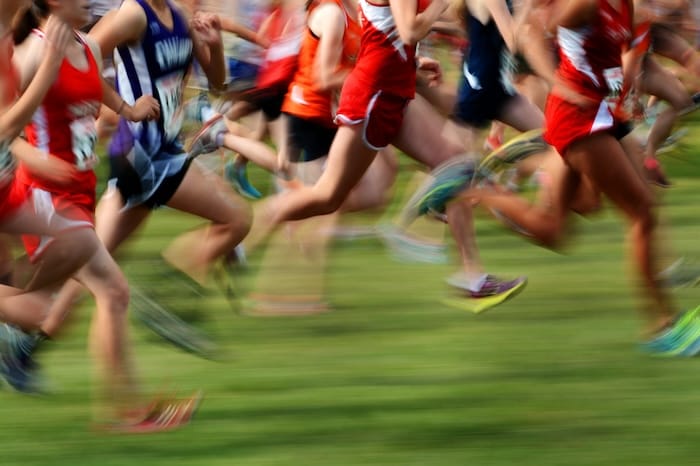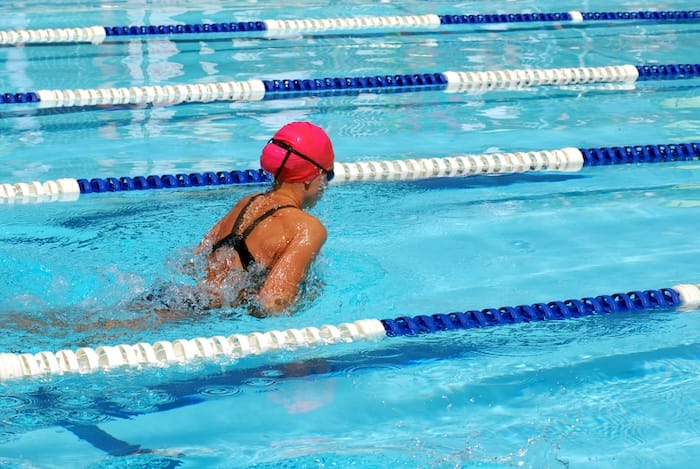- Calls to this hotline are currently being directed to Within Health, Fay or Eating Disorder Solutions
- Representatives are standing by 24/7 to help answer your questions
- All calls are confidential and HIPAA compliant
- There is no obligation or cost to call
- Eating Disorder Hope does not receive any commissions or fees dependent upon which provider you select
- Additional treatment providers are located on our directory or samhsa.gov
Orthorexia & Athletes: Why Do Some Die From This Disorder?
Orthorexia is characterized by an obsession with healthy eating. It can be confused with anorexia nervosa, which is an eating disorder.
Unlike anorexia, orthorexia is not an official diagnosis but commonly seen, especially among athletes.

Spiritual or a Concern
Orthorexia can be thought of as a righteous and spiritual way of eating and lifestyle [1]. Often, individuals who struggle with disordered eating practice a strict, healthy eating diet, frequently free of chemicals, processed or fried foods.
Exercise can be a part of orthorexia but is typically not to the extreme seen in anorexia. Orthorexia is mostly focused on having a pure, clean, and healthy body.
For many, hyperfocus on clean eating is the start of disordered eating and can develop into an eating disorder.
In 2012, one study looked at the prevalence of orthorexia among athletes and found that there was a higher prevalence of orthorexia in athletes and the rates were almost equal between men and women.
30% of men and 28% of women in a variety of sports, such as running, swimming, and basketball were found to have orthorexia [1].

Athletes are More Susceptible
Many athletes desire to have healthy bodies for peak performance or increase their stamina within their sport.
Often, for example, a runner will try to have a lower body weight or BMI to be faster, or a thrower will work to increase core and upper body strength to increase distance.
Many athletes will follow a strict clean-eating diet while training and in-season to reach or maintain a specific body size or shape.
Athletes are more susceptible to orthorexia because of the desire to have a healthier body, to gain a more athletic body, or for optimal sports performance.
Many athletes are not questioned or seen as engaging in unhealthy eating behaviors when starting this type of lifestyle change due to normalized sport-focused lifestyle choices.
These changes can increase the risk of orthorexia developing due to various sports which are judged on body shape and ability such as running, diving, gymnastics, and ballet.
Orthorexia and other disordered eating behaviors are most commonly seen among athletes than non-athlete peers [1]. Teams and coaches can be unaware of any unhealthy disordered eating patterns due to the nature of the sport itself.
Often eating healthy foods and exercising outside of training is encouraged for best performance. In many athletes, orthorexia can go undiagnosed until performance or physical health changes.

Development Over Time
Orthorexia can develop during the late teens-early adulthood years when individuals are moving away from college, switching schools, or switching sports teams.
New schools and the transitions that follow often mean new coaches and teams who may have new ways of training, eating, exercising, and expectations. Orthorexia can be used as a way to manage this stress and transition.
The pressure of sports also adds a new dynamic to athletes. Many individuals, if in the midst of change may do no-carbohydrates, or low-fat in an orthorexia diet to try to drop weight to get “race-ready.’’
This can be addicting to many athletes who see it as a way to improve time, weight, or shape quickly [1]. Athletes can become fixated on healthy eating with an obsession with purity and food quality.
Many athletes who engage in orthorexia believe that each day’s focus is to eat pure and to self-punish, if they do ‘slip-up’ on the quality of food consumed [2].
Food becomes restrictive to the point that it can affect nutrition and physical health, impair relationships, and decrease daily functioning.

Effects of Orthorexia
Often, athletes who engage in orthorexia become socially isolated due to their constant planning around food. They may be constantly thinking about food, planning meals or snacks and often lose the natural ability to gauge hunger and fullness.
Many individuals struggle to hold ‘normal’ conversations with others and feel their thoughts become overcome with food. They may experience loneliness, isolation, and think their life has little meaning outside of food.
The overriding belief, however, tends to be the desire to have a pure body both internally and externally.
Regardless of if the person is an elite athlete or not, the pressure to perform successfully is high. It can be natural to think that a reduction in specific foods or whole food groups can improve their performance.
For many though, orthorexia becomes an obsession over time as some results are noticeable, but as food and food groups are slowly restricted, the person’s body begins to suffer and break down physically and mentally as the internal stress increases.
Treatment
Treatment for orthorexia involves working with a clinical treatment team who specializes in disordered eating issues.
It is essential to not only obtain therapy to address any unhealthy belief systems and thinking patterns but to also meet with a dietician to help with increasing variety and quantity of food.
Working with a physician is also important to monitor for any physical issues such as amenorrhea, (lack of period for three consecutive months), malnutrition, stress fractures, and other physical consequences.
Orthorexia is a disordered eating pattern that can significantly damage physical, mental, and emotional health. Many athletes struggle with this disordered eating due to increased pressures to look and perform at their best.

About the Author: Libby Lyons is a Licensed Clinical Social Worker and Certified Eating Disorder Specialist (CEDS). Libby has been practicing in the field of eating disorders, addictions, depression, anxiety and other comorbid issues in various agencies. Libby has previously worked as a contractor for the United States Air Force Domestic Violence Program, Saint Louis University Student Health and Counseling, Saint Louis Behavioral Medicine Institute Eating Disorders Program, and has been in Private Practice.
Libby currently works as a counselor at Fontbonne University and is a Adjunct Professor at Saint Louis University, and is a contributing author for Addiction Hope and Eating Disorder Hope. Libby lives in the St. Louis area with her husband and two daughters. She enjoys spending time with her family, running, and watching movies.
References:
[1] Orthorexia and athletes: an area for concern. (2015, December 03). Retrieved December 04, 2017, from http://trinitynews.ie/orthorexia-and-athletes-an-area-for-concern/[2] Orthorexia Nervosa. (n.d.). Retrieved December 04, 2017, from https://www.nationaleatingdisorders.org/orthorexia-nervosa
The opinions and views of our guest contributors are shared to provide a broad perspective of eating disorders. These are not necessarily the views of Eating Disorder Hope, but an effort to offer discussion of various issues by different concerned individuals.
We at Eating Disorder Hope understand that eating disorders result from a combination of environmental and genetic factors. If you or a loved one are suffering from an eating disorder, please know that there is hope for you, and seek immediate professional help.
Published on January 24, 2018.
Published on EatingDisorderHope.com

